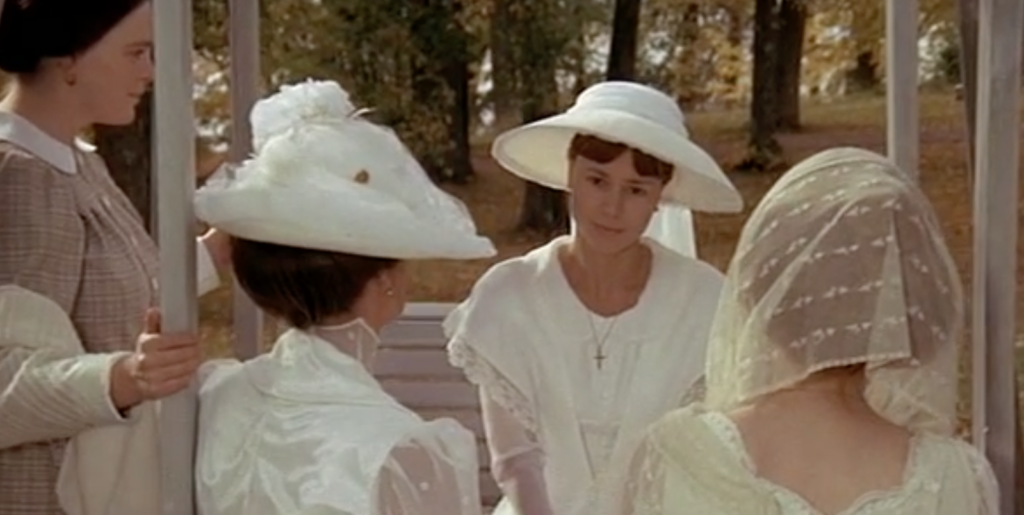69. Ingmar Bergman on Gratitude
The late director Ingmar Bergman concluded his masterful film Cries and Whispers (go here for more film information) with a diary entry by Agnes, a character who has recently passed away. The entry is spoken to us by Agnes as we see the images her entry describes. These words and images are, I think, one of the most beautiful cinematic conclusions of all time. Her entry reads:
“A summer day. It’s cool, almost a tang of autumn in the air, yet so nice and soft. My sisters, Karin and Maria, have come to see me. It’s wonderful to be together again like in the old days – like in our childhood. I’m feeling much better, too. We can even go for a little walk together – such an event for me, especially as I haven’t been out-of-doors for so long. We strolled down to the swinging seat in the oak tree. Then the four of us (Anna came too) sat in the swing and let it rock to and fro, slowly and gently. I closed my eyes and felt the breeze and sun on my face. All my aches and pains were gone. The people I’m most fond of in the world were with me. I could here them chatting round about me, I felt the presence of their bodies, the warmth of their hands. I closed my eyes tightly, trying to cling to the moment and thinking: Come what may, this is happiness. I can’t wish for anything better. Now, for a few minutes, I can experience perfection. And I feel a great gratitude for my life, which gives me so much.” [1]
You wouldn’t know from these comments that Agnes is afflicted with severe cancer. You also wouldn’t know that she has been suffering a great deal from the pettiness, selfishness, and even cruelty of her sisters Karin and Maria who surround her in her last days. But despite all her suffering she was able to see the good in others and remain good herself. She was able to remain profoundly human even in the midst of inhumanity. Perhaps more importantly, she was able to remain grateful for what she has rather than feeling cheated by others.
Bergman’s films often celebrate those precious and fleeting moments of intimacy that occur, often magically, between people despite their general alienation from each other. Bergman helps us see that these rare moments make life worth living, indeed may make life perfect. We must be grateful for them.
We should also note that the sisters in Cries and Whispers can be understood as functions of the human psyche which is represented by the red interior of the house (Bergman said he imagined the soul’s interior to be red). Our soul, no doubt, has tendencies represented by the various sisters. Hopefully, we can allow the Agnes in us, that part that can rise about superficiality, pettiness, and despair in order to affirm life and be grateful for it, to dominate.
Bergman’s masterful celebration and depiction of gratitude is a wonderful thing to keep in mind, and something easily overlooked in our efforts to discover more elusive, dramatic, or transcendent modes of happiness in our lives.
For my series analyzing Bergman’s “metaphysical reduction” trilogy of Through a Glass Darkly, Winter Light, and The Silence, go here.
[1] Quotation translated from the Swedish by Alan Blair in Four Stories by Ingmar Bergman (New York: Anchor Press, 1976), p. 94.
